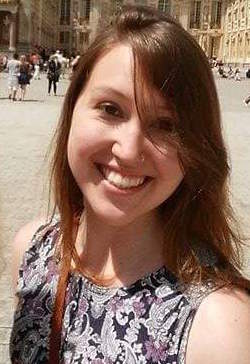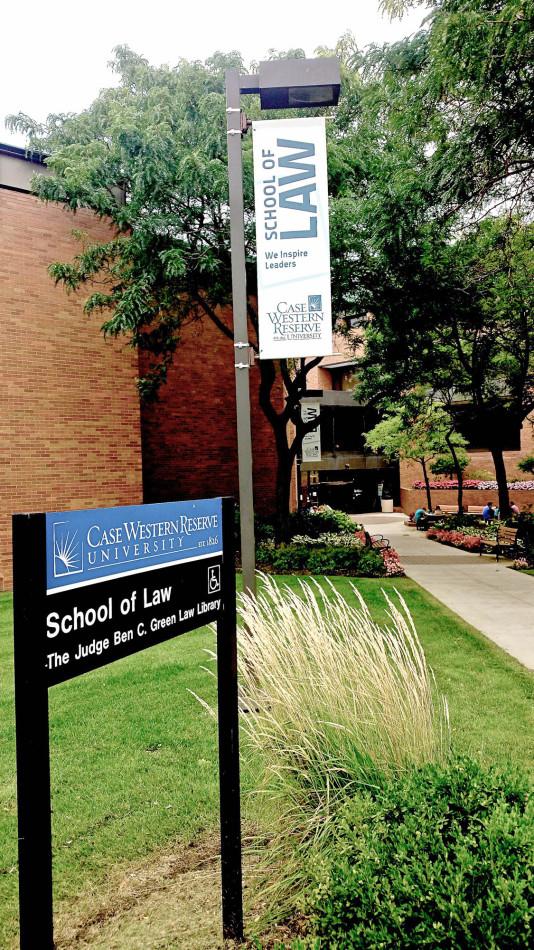CWRU School of Law sees increase in applications, despite national downward trend
Bucking the national trend, the CWRU School of Law saw an increase in applications this past year.
Good news for law schools: despite a rapid decrease in application rates in recent years, projections show that they may go back up in the near future. For the Case Western Reserve University School of Law, they already have.
Last year, the CWRU School of Law saw a 60 percent increase in applicants and a 50 percent increase in enrollment. This is contrary to the national trend, which has shown that, in 2014, 47 percent of law schools had smaller incoming classes than the previous year. So why has there been a national decrease, and what makes CWRU different?
In 2008, people weren’t excited to join the job market, which had high unemployment rates, especially for recent graduates. By going to law school, qualified applicants were able to postpone the scary prospect for a few more years. The recession eventually caught up with the legal market, though, when these students oversaturated the market, leading to a 17 percent increase in the field’s unemployment. Seeing this, many potential law students chose not to pursue the profession, resulting in a 40 percent national decrease in applicants.
“It was an overcorrection in the market,” said Michael Scharf, interim co-dean of the CWRU School of Law.
Now, the number of applicants is decreasing at its lowest rate in years. Scharf and his Interim Co-Dean Jessica Berg believe that the School of Law’s increase in applications, despite the national trend, is due to the program’s unique experiential curriculum, small classes and involved faculty.
According to Scharf, the school’s curriculum “meets the needs of lawyers in the twenty-first century.”
After the resignation of the CWRU School of Law’s former dean Lawrence Mitchell and the court cases surrounding it, a ruined reputation was not unlikely. To ensure otherwise, Berg and Scharf made an effort to reach out to applicants and show them the kind of people they can work with at the CWRU School of Law. They even called accepted applicants within 48 hours to give them the good news personally.
Although there has been a declining number of applicants to law schools nationally, the criteria for admission have not been getting any less strict. Many law schools would prefer to admit smaller incoming classes, rather than larger classes with less qualified students.
When looking at applicants, the CWRU School of Law examines a number of different factors to make decisions among the growing number of applicants. Scharf says that a high grade point average indicates to the school which students are highly motivated, hardworking and smart, all essential qualities in lawyers. The law school admission test score is another, more objective, indicator of this.
The most important component at the CWRU School of Law, one that is more unique to the school, is leadership. Scharf says that leadership is part of the “persona” of the law school, and they want to see that reflected in each of their applicants.
Senior pre-law students Eva Cuollo and Stephanie Farah also recognize the importance of leadership. In order to prepare for law school, and to remain competitive among an increasingly qualified applicant pool, they both worked to enhance their resumes with leadership roles in extracurricular activities. However, both believe that the personal statement is the most important part of the application.
“[In the personal statement], tell a story that says, this is me, this is why I’m special, and I’m not going to tell you a story that everyone else has,” said Cuollo, who believes that the personal statement is a way to sell herself to the law school. Farah describes it as a place to explain why she is pursuing law.
Neither Farah or Cuollo were surprised when they heard that applications were getting more competitive. Farah has been talking with Terri Mester, CWRU’s pre-law advisor, and is aware of the competition she’s up against. She set early deadlines to stay ahead of schedule.
Cuollo, however, is still worried about the rising competition. She feels that law school applicants are getting fewer and fewer chance to prove themselves, with the focus mainly on their GPA, LSAT score, and personal statement. She worries that there are no interviews, and that the focus is just how they appear on paper.
“Preparing for law school and applying for it is a really hard process because you’re trying to show who you are,” said Cuollo.

Anastazia Vanisko is copy editor for The Observer and writes for the news section. She is a third-year political science and dance double major, with minors...


